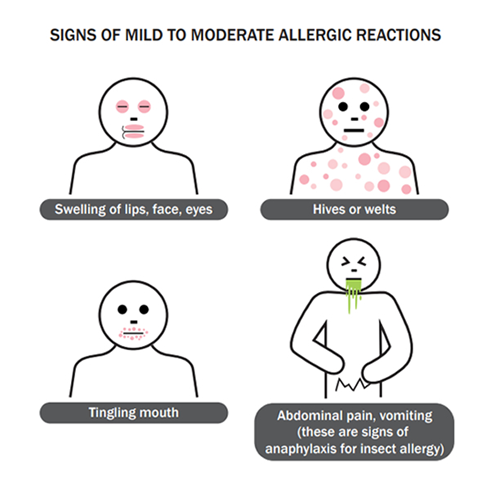A nurse is preparing a presentation for coworkers about the various herbal remedies clients might report using. Which of the following should she include as an herbal supplement clients might use to treat menopause-related hot flashes?
Echinacea
Saw palmetto
Black cohosh
Cranberry juice
The Correct Answer is C
A. Echinacea:
Echinacea is commonly used to support the immune system and may be used to prevent or reduce the severity of colds and other infections. However, it is not typically used specifically for treating menopause-related hot flashes.
B. Saw palmetto:
Saw palmetto is primarily used for managing symptoms related to the prostate gland, such as benign prostatic hyperplasia (BPH), and is not commonly used for treating menopause-related hot flashes in women.
C. Black cohosh:
Black cohosh is one of the most widely studied herbal remedies for managing menopause-related symptoms, including hot flashes. Research suggests that black cohosh may help reduce the frequency and severity of hot flashes in some women experiencing menopausal symptoms.
D. Cranberry juice:
Cranberry juice is often used to promote urinary tract health and prevent urinary tract infections (UTIs). While it may have some health benefits, cranberry juice is not typically used for managing menopause-related hot flashes.
Nursing Test Bank
Naxlex Comprehensive Predictor Exams
Related Questions
Correct Answer is B
Explanation
A. Headaches:
Headaches are a common symptom that can occur for various reasons, including stress, tension, dehydration, or as a side effect of medications. While headaches can sometimes occur as a side effect of certain drugs, they are not specific indicators of a drug allergy. Allergic reactions to medications typically involve other symptoms such as rash, hives, itching, swelling, or respiratory symptoms.
B. Hives or shortness of breath:
Hives (urticaria) are raised, red, itchy welts on the skin that can occur as an allergic reaction to medications. They are a common manifestation of drug allergies. Shortness of breath (dyspnea) can occur as part of a severe allergic reaction known as anaphylaxis. Anaphylaxis is a life-threatening allergic reaction characterized by a rapid onset of symptoms, including difficulty breathing, swelling of the throat or tongue, rapid heart rate, and low blood pressure. Both hives and shortness of breath are significant signs of a potential drug allergy and require immediate attention.
C. Diarrhea:
Diarrhea can occur as a side effect of medications, including antibiotics. However, it is not typically a specific indicator of a drug allergy. Diarrhea is more commonly associated with gastrointestinal disturbances or as a reaction to changes in gut flora due to antibiotic use.
D. Nausea:
Nausea is a common side effect of many medications, including antibiotics. While it can be bothersome, nausea alone is not a specific indicator of a drug allergy. Allergic reactions to medications typically involve other symptoms such as rash, hives, itching, swelling, or respiratory symptoms.

Correct Answer is B
Explanation
A. Decision to administer either a bactericidal or bacteriostatic drug:
Culture and sensitivity tests provide information about the susceptibility of the microorganism to specific antimicrobial agents. Based on this information, healthcare providers can choose between bactericidal (agents that kill bacteria) or bacteriostatic (agents that inhibit bacterial growth) drugs. For example, if the culture indicates that the microorganism is susceptible to a bactericidal drug, such as penicillin, the healthcare provider may choose to administer that type of drug.
B. Microbial susceptibility to an anti-infective:
This option accurately describes one of the primary purposes of culture and sensitivity tests. These tests determine whether the microorganism causing the infection is susceptible or resistant to specific antimicrobial agents. This information guides the selection of the most appropriate anti-infective therapy to effectively treat the infection.
C. Duration of the antibacterial drug therapy:
While culture and sensitivity tests provide valuable information about microbial susceptibility to antimicrobial agents, they do not specifically determine the duration of antibacterial drug therapy. The duration of therapy is often determined based on factors such as the type and severity of the infection, the patient's response to treatment, and clinical guidelines, rather than solely on the results of culture and sensitivity tests.
D. Decision to administer empiric therapy:
Empiric therapy involves the initiation of antimicrobial treatment based on clinical judgment and knowledge of likely pathogens before culture and sensitivity results are available. Culture and sensitivity tests help confirm the causative microorganism and guide subsequent treatment decisions, including adjustments to therapy based on the results. Therefore, while culture and sensitivity tests inform decisions regarding antimicrobial therapy, they do not directly determine whether empiric therapy should be initiated.
Whether you are a student looking to ace your exams or a practicing nurse seeking to enhance your expertise , our nursing education contents will empower you with the confidence and competence to make a difference in the lives of patients and become a respected leader in the healthcare field.
Visit Naxlex, invest in your future and unlock endless possibilities with our unparalleled nursing education contents today
Report Wrong Answer on the Current Question
Do you disagree with the answer? If yes, what is your expected answer? Explain.
Kindly be descriptive with the issue you are facing.
